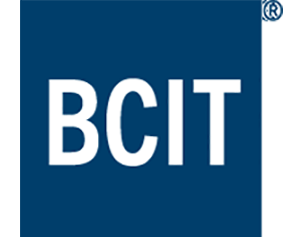
B.C. Institute of Technology
BCIT’s School of Health Sciences is hiring for a part-time studies (PTS) curriculum development (140 hours, June 20th – July 15th) and instructor (55 hours, July 18th – July 29th) position. The successful candidate will be responsible for developing the laboratory and theoretical content for a new animal cell culture microcredential and will also implement and teach the laboratory course. Candidates must have expertise in animal cell culture following pharmaceutical and biotechnology industry standards. They should also have a good understanding of its role in the biotechnology, biopharmaceutical and biomanufacturing sectors and a desire to pass on their knowledge and animal cell culture skills to trainees.
RESPONSIBILITIES:
The animal cell culture microcredential is a 2-week long, intensive laboratory training course with 45 hours of hands-on (in person) training of 12 trainees over 10 days. There will also be 10 hours of theoretical training (online or in-person) during the 2 weeks of the course. The successful candidate for this position will be responsible for curriculum development prior to the start of the course (140 hours, June 20th to July 15th), which will include the following:
- Developing animal cell culture labs that will provide trainees with the maximum amount of experience in animal cell culture over a 2-week period.
- In person work at the BCIT Biotechnology labs (Burnaby campus) to develop, test and/or validate the training labs and prepare for the start of the microcredential course. This in person work will occur from approximately July 6th until July 15th
- Preparing a laboratory manual for the animal cell culture microcredential.
- Developing short lectures and interactive exercises that will provide trainees with the theoretical background for the cell culture work they will be carrying out in the lab.
- Developing assignments and quizzes that will assess their understanding of the theoretical background being taught.
The successful candidate will also be responsible for the teaching and laboratory training during the microcredential course (55 hours, July 18th – 29th), which will entail:
- Delivering pre-lab and post-lab lectures and discussions to trainees.
- Preparing the training labs, performing demonstrations and delivering the training in animal cell culture and other laboratory techniques to 12 trainees.
- Continuously observing, assisting and providing feedback to trainees while they perform animal cell culture and other laboratory techniques.
- Evaluating trainee competency in animal cell culture through a final practical exam.
- Marking assignments and quizzes.
During the development of the microcredential, the candidate will receive orientation in the Biotechnology labs and support from faculty who have years of experience teaching animal cell culture to students in the Joint UBC-BCIT Honours B.Sc. in Biotechnology Program. The candidate will also have the support of a laboratory assistant with experience in cell culture for the 2-week duration of the course.
QUALIFICATIONS:
- Minimum of a B.Sc. degree in a life sciences field such as Cell Biology, Immunology, Molecular Biology or Biochemistry.
- Expertise in animal cell culture acquired from a minimum of 5 years of recent experience in the biotechnology industry (preferred) or an academic lab that adhered to “good aseptic technique”.
- Good understanding of the biotechnology industry, with recent experience in industry considered an asset.
- Prior experience with the practical training of undergraduates in life sciences procedures and techniques would be an asset.
- Excellent oral and written communication skills in the English language.
- Strong organizational and time-management skills.
- Professional attitude which stresses commitment, collaboration, responsibility for professional growth, open-mindedness and flexibility.

